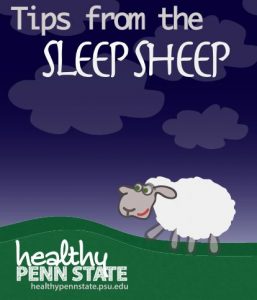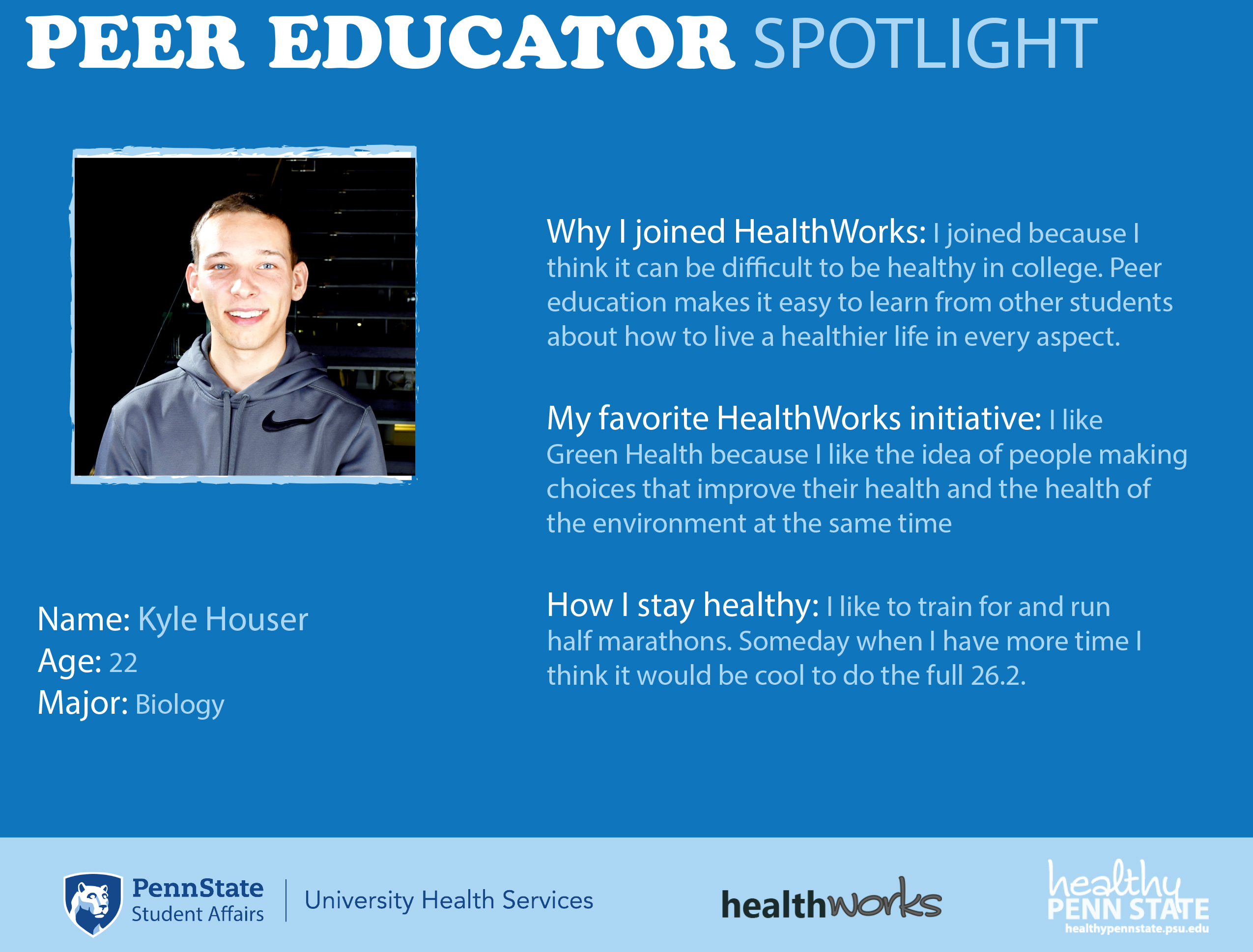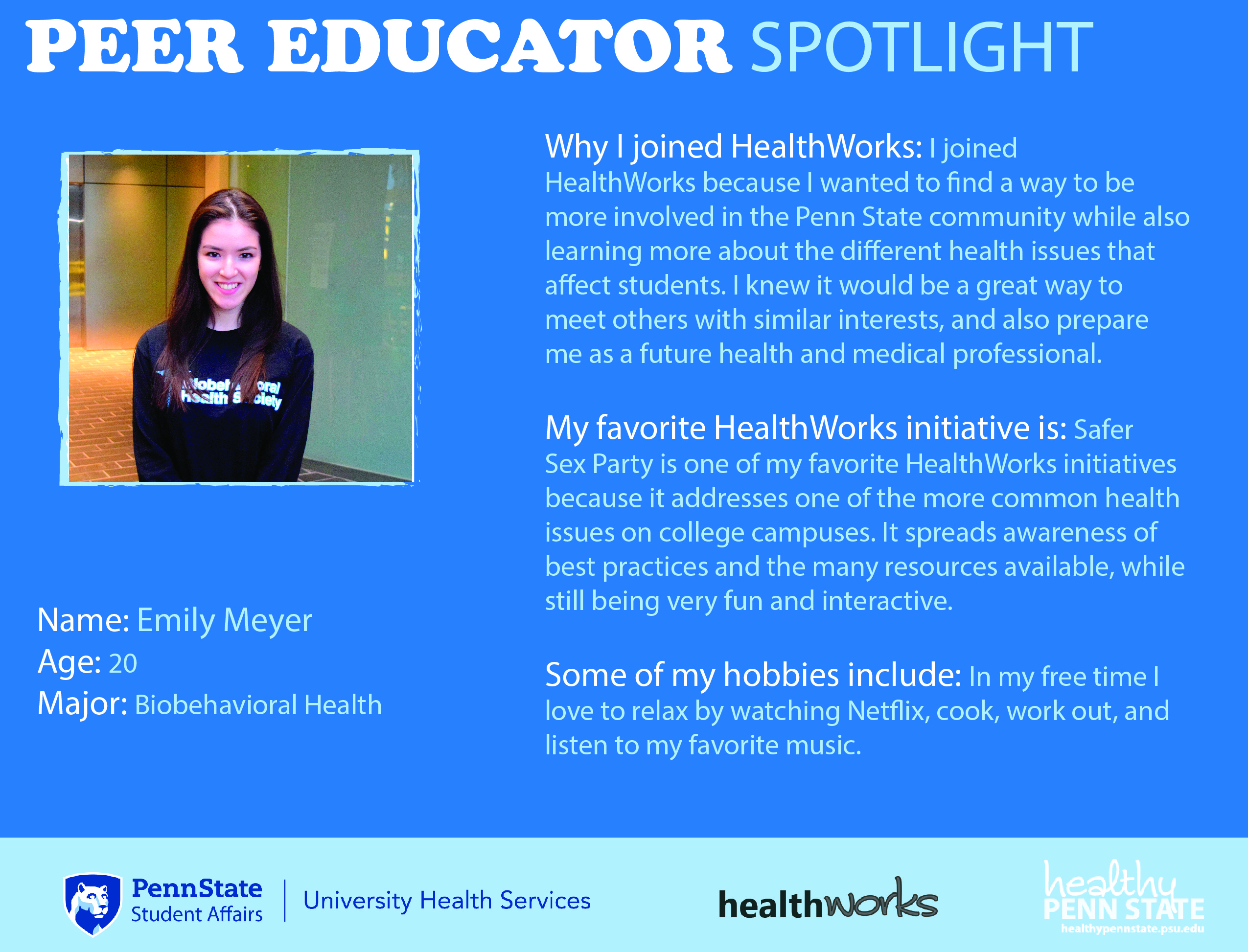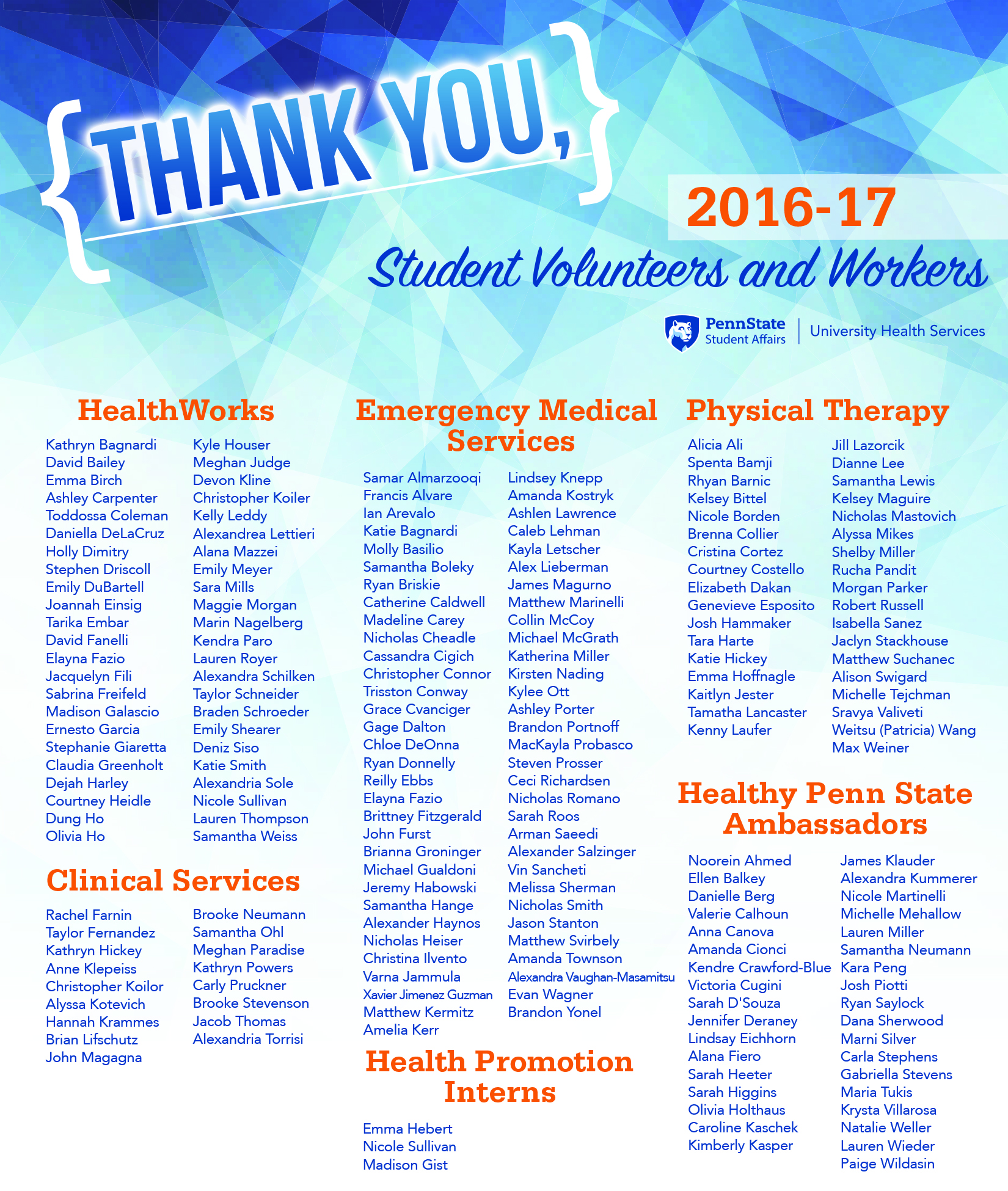
According to Jessica Payne, a psychologist at Notre Dame University, going to sleep right after studying can help you remember new information. In a recent study, Payne found that “memory was superior when sleep occurred shortly after learning rather than following a full day of wakefulness.”[1]
Penn State students ranked sleep difficulty as the third highest health issue affecting their academics.[2]
Here are three tips that could help you sleep better:
- Get 7 to 9 hours of sleep! This will maximize your learning, memory, and academic performance.
- Keep a consistent sleep schedule: going to sleep and waking up around the same time every day will help you set your internal clock and help you get better sleep
- Relax! Create a pre-sleep ritual. Get ready for bed each night by practicing deep breathing or listening to relaxing music.
Stop by 201 Student Health Center to pick up your free sleep kit. It includes an eye mask, earplugs, and tips from the Sleep Sheep on how to get a better night’s sleep.
[1] Payne, J. D., Tucker, M. A., Ellenbogen, J. M., Wamsley, E. J., Walker, M. P., Schacter, D. L., & Stickgold, R. (n.d.). Memory for Semantically Related and Unrelated Declarative Information: The Benefit of Sleep, the Cost of Wake. Retrieved April 11, 2017, from http://journals.plos.org/plosone/article/authors?id=10.1371%2Fjournal.pone.0033079
[2] Healthy Penn State. University Health Services, n.d. Web. 28 Mar. 2017.
https://healthypennstate.psu.edu/wp-content/uploads/sites/4423/2016/07/Accessible-version-PSU-Annual-Report-2016.pdf



